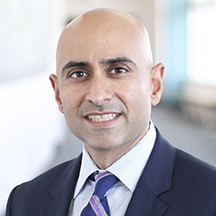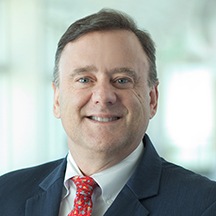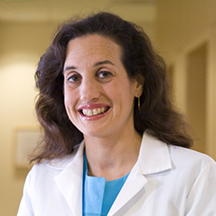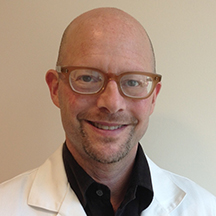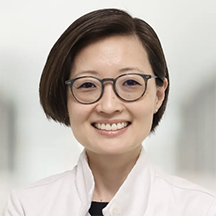
Treatment & Clinical Research for Head and Neck Cancer at PNI
by Guest Author
Head & neck surgical oncologist Evan Walgama, MD, works with his patients to make treatment decisions. This shared decision-making steers his research pursuits at Pacific Eye, Ear & Skull Base Center.
When Evan S. Walgama, MD, sees a patient at Pacific Neuroscience Institute (PNI), he goes beyond just treating the immediate condition. Part of his mission as a head and neck surgeon is to explore the larger picture surrounding each patient’s treatment: What was the patient’s experience during treatment, and was that individual satisfied with the result?
Dr. Walgama, who practices at Pacific Neuroscience Institute’s Eye, Ear, and Skull Base Center, and also partners with Saint John’s Cancer Institute, believes patient decision-making and quality of life are critical metrics in medicine.
“I try to let my head & neck cancer clinical work inform my research efforts as much as possible. I ask questions that are relevant to my patients or to their outcomes or to the health care system that treats them,” he says.
Shared decision-making

He has built a tumor registry for patients with head and neck cancer that focuses on cancer outcomes alongside the decision-making process that all patients face. Every patient in his practice is offered the choice to participate in surveys about their quality of life, cancer staging, and treatment outcomes. “We put that information together with how the patients feel about their choices as they go through treatment and after it,” Dr. Walgama says. “I think what we learn can help providers and patients in the future make better decisions about the difficult problems that they face. When you know how something has affected patients in the past, you’re able to provide better guidance.”
For example, he says, patients who have human papillomavirus-related (HPV) cancers that affect the tonsils and tongue base often can choose either surgery or nonsurgical treatment using radiation-based therapy.
“For both pathways, the outcomes are generally good, but the issues that patients may face after treatment are different,” he says. “So I’m really trying to go after the third-order question: How do they feel about the decision they made and everything that they went through? Would they have done something differently? We’re interested in what stress the process puts on patients and their families—everything from financial stress to whether they have trouble with their teeth or with swallowing post-treatment.”
Treatment and clinical trials go hand-in-hand

While head and neck surgery presents physicians with interesting challenges—many tumors of the head and neck involve sensitive areas that can impact hearing, speech, swallowing, and other key functions—Dr. Walgama says he chose the specialty because of the potential benefits he could bring to patients’ lives.
“This is a very consequential moment in a patient’s life,” he says. “I deal with patients in that difficult time and try to be a resource for them, to help them through the process of finding what they perceive to be in their best interest and what I think will give them a good outcome.”
Striving to improve the standard of care
As part of Providence Saint John’s Health Center in Santa Monica, and Providence Little Company of Mary in Torrance, Dr. Walgama is among a large group of physicians who combine research into clinical practice. He has authored more than 30 articles in medical journals, including studies on the cost-effectiveness of treatments, health economics, decision analysis, and also clinical outcomes. He is now focused on oncology clinical trials. Offering patients access to clinical trials, which often feature promising new therapies that are not usually available to patients at non-research institutions, is a central goal of the practice, he says.

“I’m hoping to build a culture here at Saint John’s in which patients with head and neck tumors are offered the best available trials that might benefit them,” Dr. Walgama says. “One thing we’re looking at is incorporating immunotherapy clinical trials. Immunotherapy helps activate the patient’s own immune response against the tumor.”
He says he has found at Providence Saint John’s Health Center an atmosphere in which both excellence in clinical practice and research are supported. He hopes to secure funding for several critical goals, including establishing a research fellowship for medical students and improving the dissemination of new findings via conferences and virtual meetings.
“Philanthropy makes this research possible and ultimately improves the quality of care,” Dr. Walgama says. “My goal is to offer state-of-the-art head and neck cancer care at Providence hospitals in Southern California. We can be the tide that lifts all boats by having a strong head and neck program, raising awareness and sharing resources.
Article adapted from the Saint John’s Health Center magazine.
About Dr. Evan Walgama
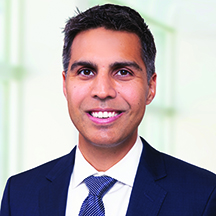
Evan Walgama, MD is a board-certified Otolaryngologist – Head & Neck / ENT Surgeon at the Pacific Eye, Ear & Skull Base Center at Pacific Neuroscience Institute, CA. His particular area of expertise is in the treatment of patients with benign and malignant tumors of the head and neck. Dr. Walgama is a dual fellowship-trained surgeon. He completed his Sinus and Skull Base fellowship at Stanford, followed by a Head and Neck Surgical Oncology fellowship at MD Anderson. He brings together both skillsets to treat challenging cancers of the ear, nose, and throat, with a priority focus on the preservation of quality of life for patients and their families.
Head and Neck Cancer Team
The Pacific Neuroscience Institute was designated as North American Skull Base Society Multidisciplinary Team of Distinction for 2021. As a multi-disciplinary team, we treat patients from the greater Los Angeles area and beyond, and look forward to providing you and your family additional information and support.
More Information:
PNI – Santa Monica: 310-829-8701
PNI – South Bay: 424-212-5361
Useful Links
- Head and Neck Cancer
- Head and Neck Clinical Trials – Saint John’s Cancer Institute
- Pacific Eye, Ear, and Skull Base Center
Videos
Last updated: November 1st, 2022

